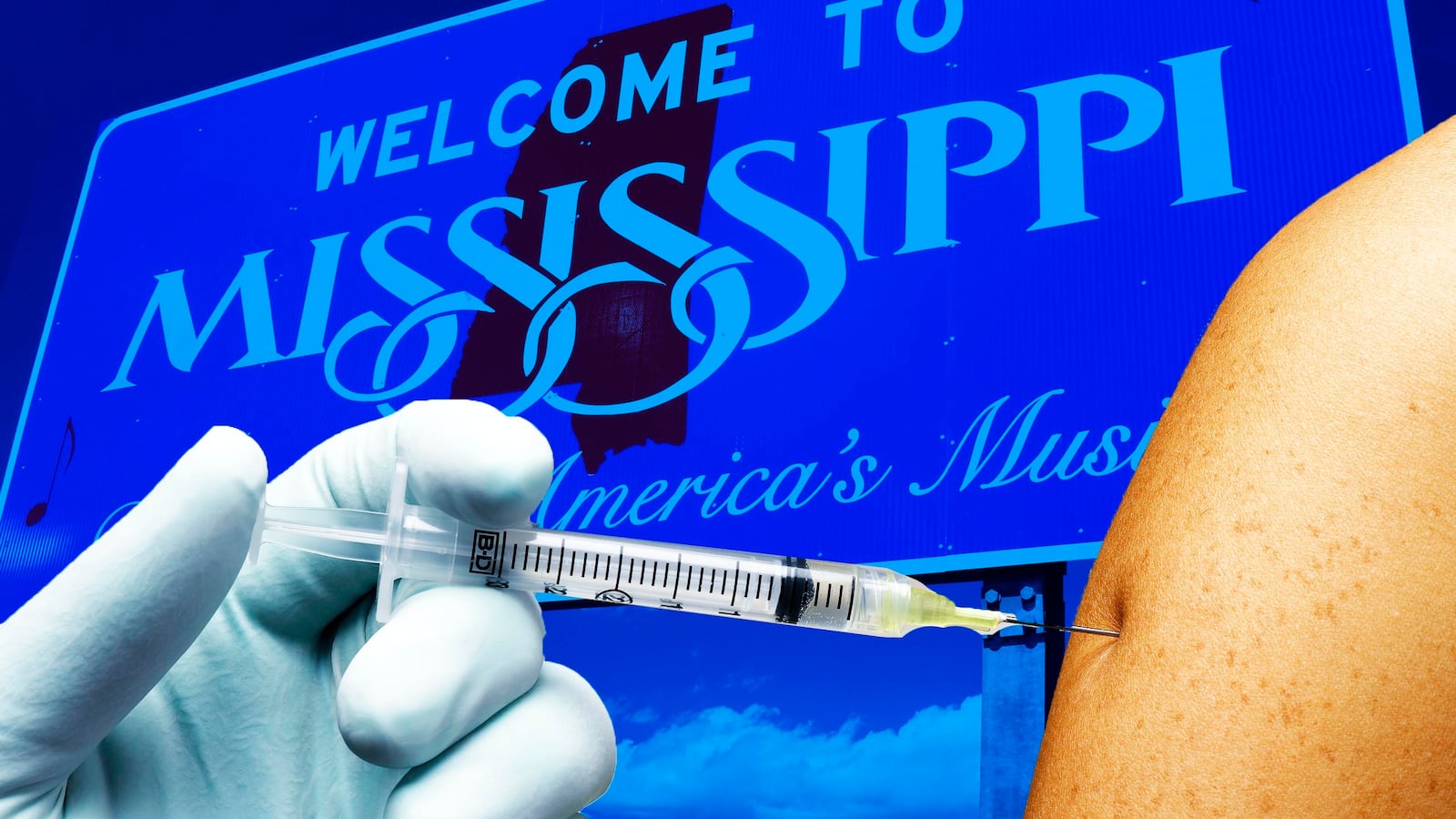In October, when the Centers for Disease Control and Prevention (CDC) released its state-by-state comparison of immunization rates among kindergartners for the 2016-17 school year, one state shone above the rest—Mississippi, where rates for childhood vaccines were 99.4 percent for each of the vaccines evaluated.
For context, every state had high immunization rates, with none dipping below 84 percent. But Mississippi was a surprise leader in vaccinations. Between 2012 and 2014, the state ranked dead last in overall health rankings. Mississippi’s efficiency at immunizing its children is therefore puzzling: How did a state with the worst overall health in the nation score the best vaccination rates?
The answer can be found in a single event that occurred on Dec. 19, 1979.
In the late 1970s, 6-year-old Chad Brown was denied entrance to the first grade because his father, Dr. Charles Brown, had chosen not to immunize him. Dr. Brown, a chiropractor from Houston, Mississippi, was a strong opponent of vaccines. Brown sued Joe Stone, who represented the Houston Municipal School District. The case, known as Brown v. Stone, worked its way up to the Mississippi Supreme Court, representing a rare moment in U.S. jurisprudence where parental duties trumped parental rights.
When Charles Brown chose not to immunize his son, residents of Mississippi were allowed to exempt their children from vaccination based on their religious beliefs. The religious belief statute provided, among other things, that “a certificate of religious exemption may be offered on behalf of a child by an officer of a church of a recognized denomination.” Not all religions qualified. The belief statute also stated that the “certificate shall certify that parents or guardians of the child are bona fide members of a recognized denomination whose religious teachings require reliance on prayer or spiritual means of healing.” In other words: faith healers. Charles Brown was a member of the Church of Christ, which did not specifically prohibit the use of modern medicines, including vaccines.
Brown argued that the Mississippi code was unconstitutional because it violated the First Amendment, which prevented “Congress from making any law regarding the establishment of religion or prohibiting the free exercise of religion.” Brown claimed that his personal religious beliefs caused him to reject vaccines—even if the Church of Christ didn’t share his views—and that Mississippi’s religious exemption law had placed one organized religion (faith healers) above another (non-faith healers). He argued that by forcing him to join a different religious group to exempt his son from vaccines, the state of Mississippi had made a law that prohibited his free exercise of religion.
Brown and his lawyers were confident that they would win the case. But it didn’t work out that way. Instead of focusing on the First Amendment as expected, Mississippi Supreme Court justices focused on the 14th Amendment, which states in part that no U.S. citizen “shall be denied equal protection under the law.” In other words, if a parent harbors a religious belief that contradicts a basic tenant of modern medicine, and that belief puts the child in harm’s way, the state has a right to protect the child from the irresponsible acts of the parent.
In Brown v. Stone, the Mississippi justices argued that all parents have a duty to “provide the child with food, clothing, and shelter and to protect the child from preventable exposure to danger, disease, and mortality.” Further, they argued that this duty takes precedence over a religious belief that denies that duty.
Mississippi justices took one more step, arguing that parents claiming a religious exemption to vaccination were making a decision for other children as well. The justices argued that if they granted Charles Brown the exception that he sought, it “would discriminate against the great majority of children whose parents have no such religious convictions [and] expose [these other children] to the hazard of associating in school with children exempted under the religious exemption…”
In 1979, the state of Mississippi argued that children whose parents hold ill-founded and potentially dangerous beliefs—whether cloaked in the robes of religion or not—shouldn’t be afforded less protection under the law. In essence, they argued that although parents can determine how a child lives, they can’t determine whether the child has the right to a life unhindered by preventable diseases.
Today, 47 states have religious exemptions to vaccination. Using religion as an excuse to perform a profoundly unreligious act, parents in these states have the right to allow their children to catch and transmit potentially fatal infections. Our country would do well to follow the state that stood up for its children in 1979.






